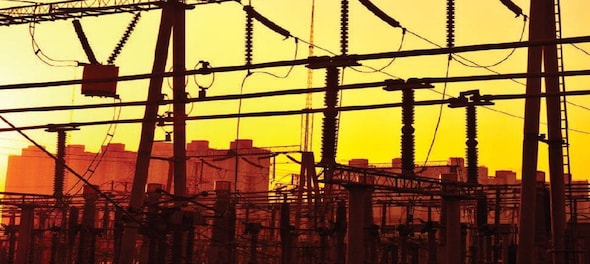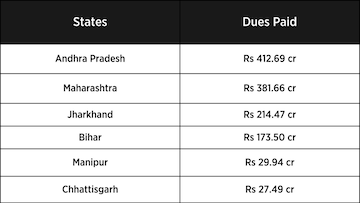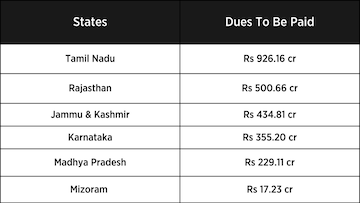
After the Centre barred 12 states and one Union Territory from buying or selling electricity at the spot market, six states — Andhra Pradesh, Maharashtra, Jharkhand, Bihar, Manipur, and Chhattisgarh — were permitted to trade after they cleared their pending dues.
On August 18, the national grid operator Power System Operation Corporation (POSOCO) asked the three power exchanges in India — Indian Energy Exchange (IEX), Power Exchange India Limited (PXIL) and Hindustan Power Exchange (HPX) — to restrict 27 discoms across the 12 states and one UT from trading on their platforms on account of non-payment of outstanding dues.
The list included states such as Andhra Pradesh, Telangana, Tamil Nadu, Karnataka, Jharkhand, Bihar, Madhya Pradesh, Chhattisgarh, Maharashtra, Rajasthan, Manipur, Mizoram and the Union territory Jammu and Kashmir.
Together, they owe about Rs 5,100 crore in current dues to power generators. Additionally, power distribution companies (discoms) have more than Rs 1 lakh crore of accumulated dues, which are being settled as per a plan formulated by the Centre, The Economic Times reported.
Later in the night, the six states claimed to have no outstanding or disputed matters and were allowed to trade.
Who paid and how much?
Andhra Pradesh cleared dues of Rs 412.69 crore, Maharashtra paid Rs 381.66 crore, Jharkhand Rs 214.47 crore, Bihar Rs 173.50 crore, Manipur Rs 29.94 crore and Chhattisgarh cleared dues of Rs 27.49 crore

The remaining seven states are also trying to clear their dues. Among these states, Tamil Nadu owes Rs 926.16 crore, Rajasthan Rs 500.66 crore, J&K has a pending bill of Rs 434.81 crore, Karnataka Rs 355.20 crore, Madhya Pradesh Rs 229.11 crore and Mizoram’s dues stand at Rs 17.23 crore.
The outstanding amounts of these states are mostly arrears, Rajib K. Mishra, Director-Marketing and Business Development and CMD, PTC India, told CNBC TV18.
What is the LPS?
In a letter sent to the three exchanges, POSOCO said it had taken the decision in view of the outstandings of these utilities as per the information available on the PRAAPTI portal. PRAAPTI is the abbreviation for Payment Ratification And Analysis in Power Procurement for Bringing Transparency in Invoicing of Generators.
The action was taken under the Electricity (Late Payment Surcharge and Related Matters) Rules, 2022 that was notified in June. The Late Payment Surcharge (LPS) refers to the charges paid by a discom to a generating company or electricity trader for the delay in payment of monthly charges beyond the due date.
This is the first time the national grid operator has invoked the rule to penalise discoms by disallowing them to trade power in order to bring payment discipline in the power sector.

According to the rules, discoms will have to shell out a late payment surcharge (LPS) on the outstanding amount within a month of the due date of payment. Subsequently, the rate of LPS for successive months of default will increase 0.5 percent for every month of delay.
If the discoms delay beyond 75 days, the states can be penalised.
If the default continues beyond three-and-a-half months, the Centre can impose a complete ban on buying short-term power from the spot market, followed by regulation of medium- and long-term power supply.
Telangana move
The Telangana power utility plans to move contempt proceedings in the high court. Telangana has accumulated dues of Rs 1,380.96 crore.
In an order in April, the High Court of Telangana allowed the state’s discoms and the Telangana State Power Coordination Committee (TSPCC) “to operate through the power exchanges as well as secure power through open access without any hindrance, pending disposal of our writ petition,” The Hindu quoted a top official of the utility as saying.
The official requested the Centre to not take any further action restricting Telangana utilities from trading power through the exchange.



